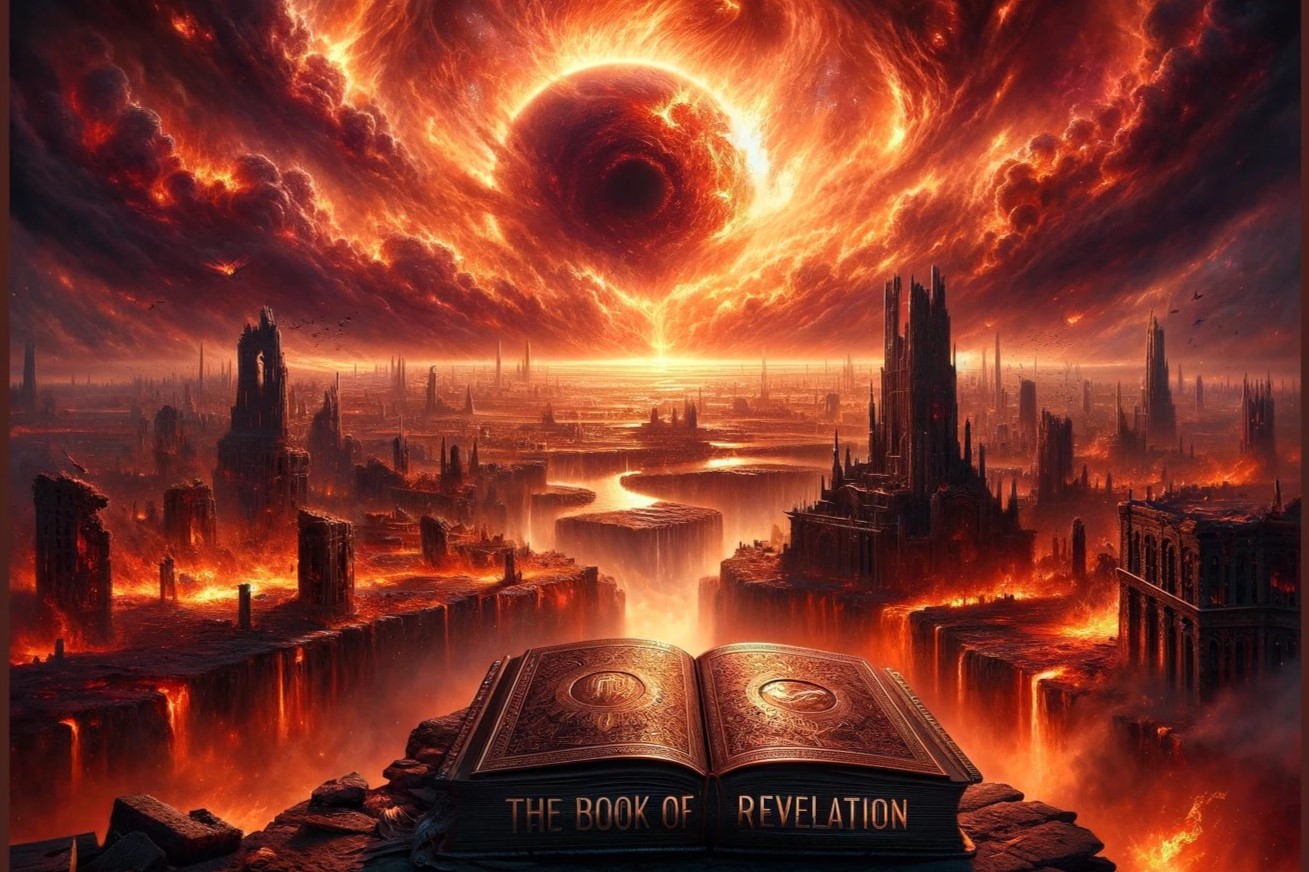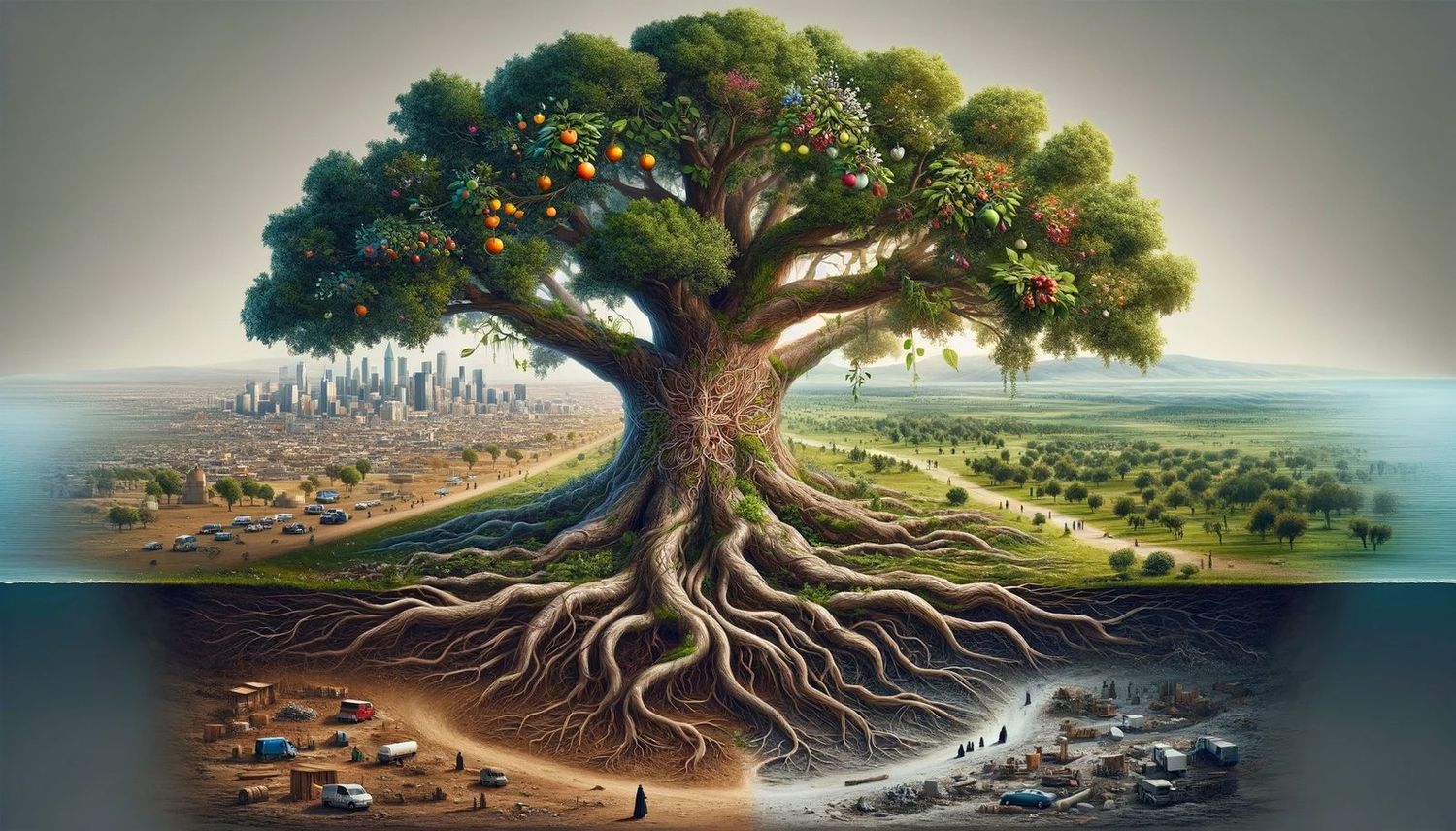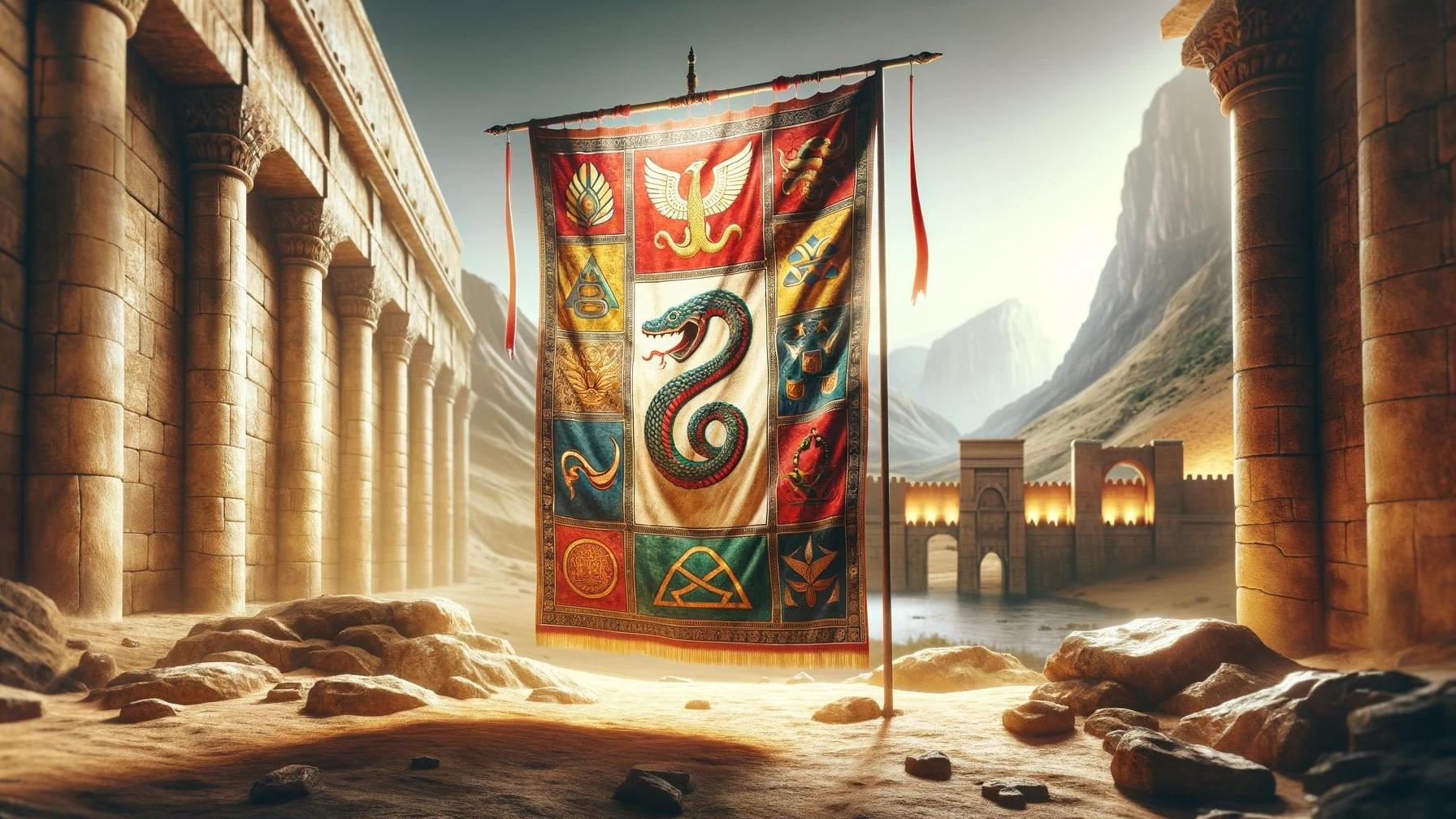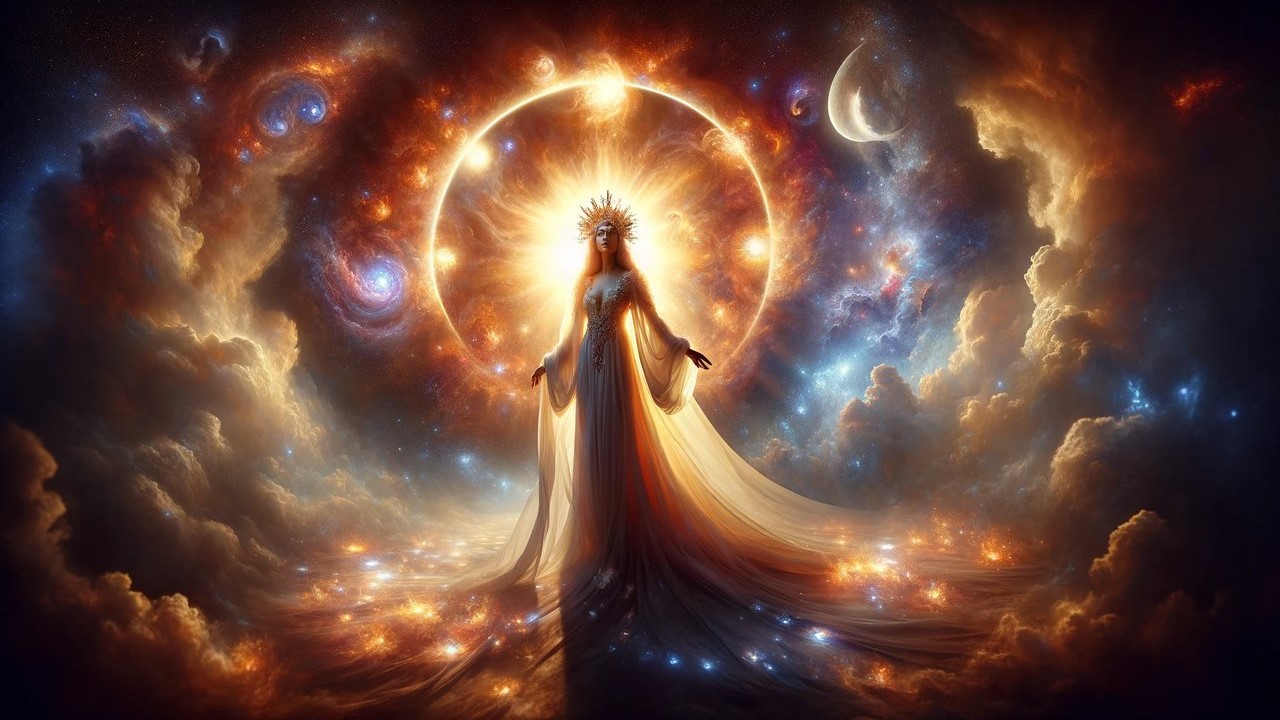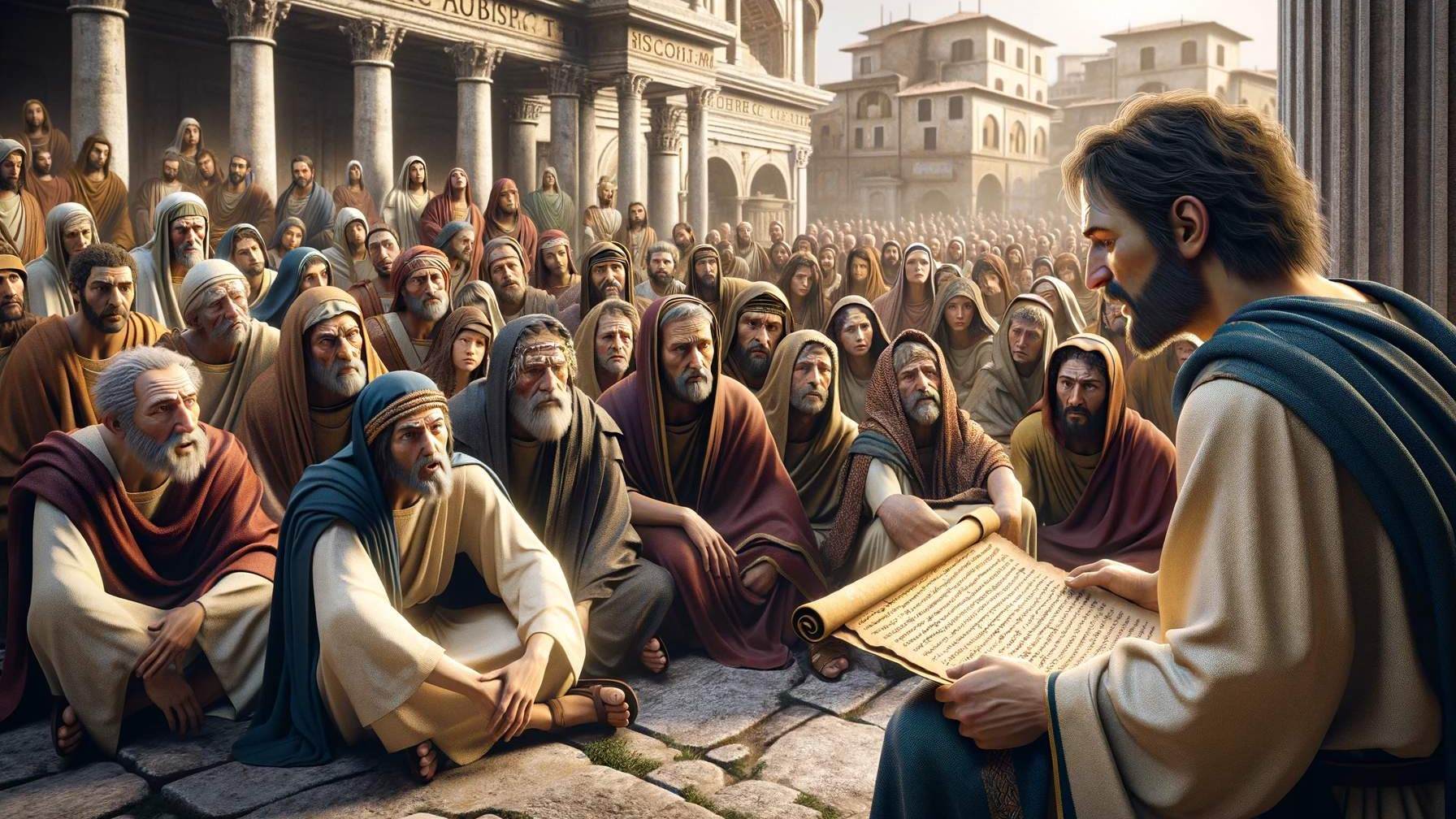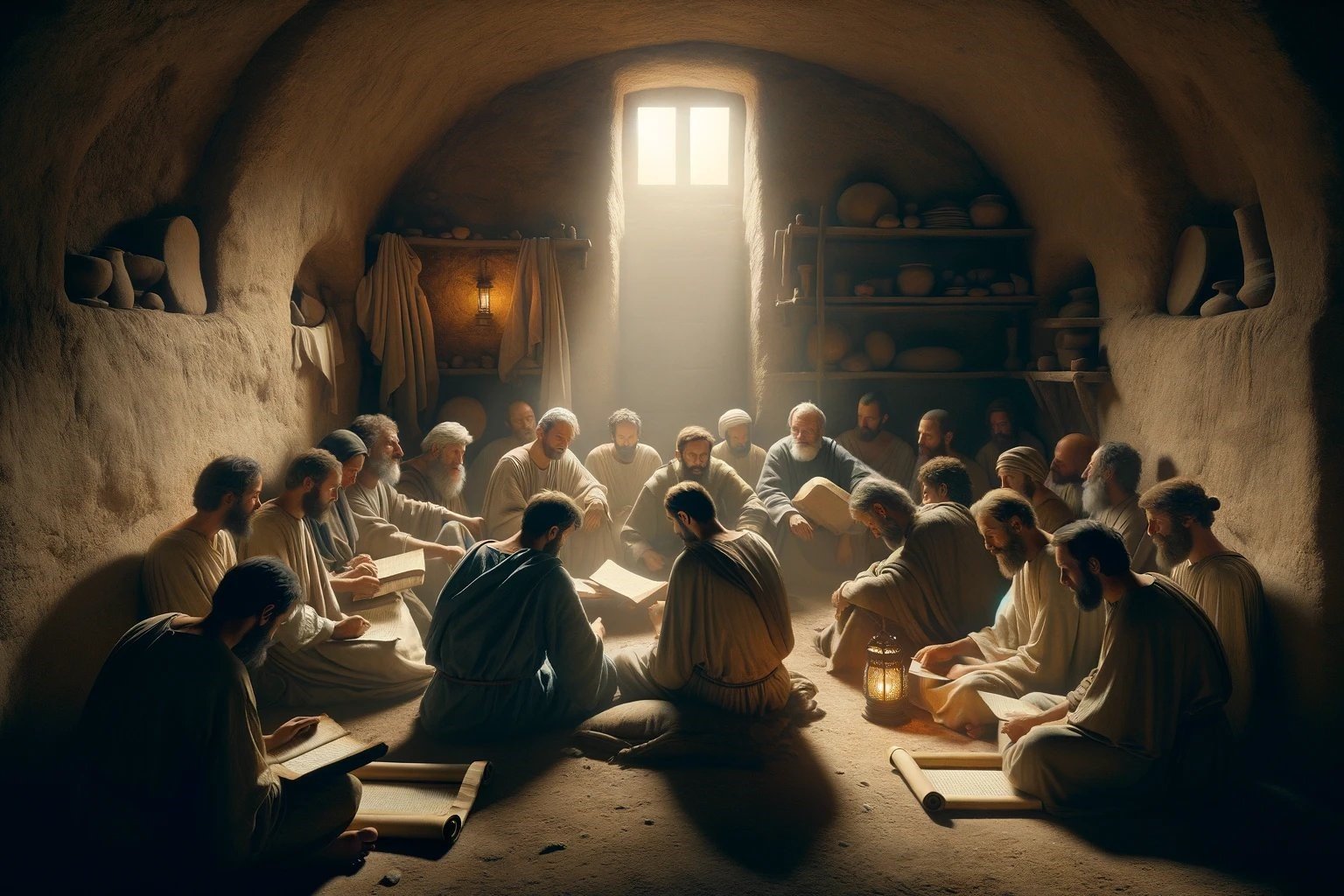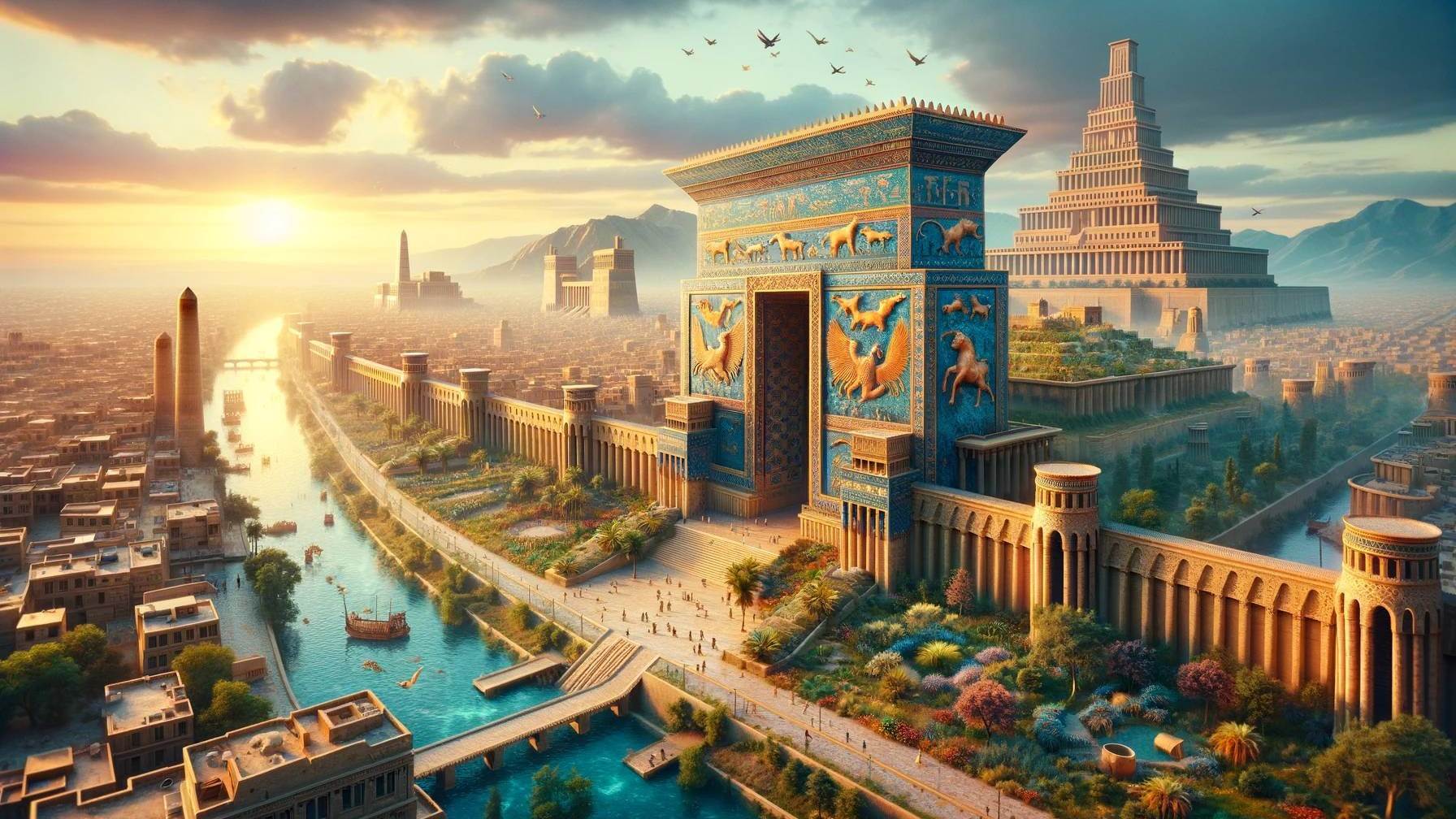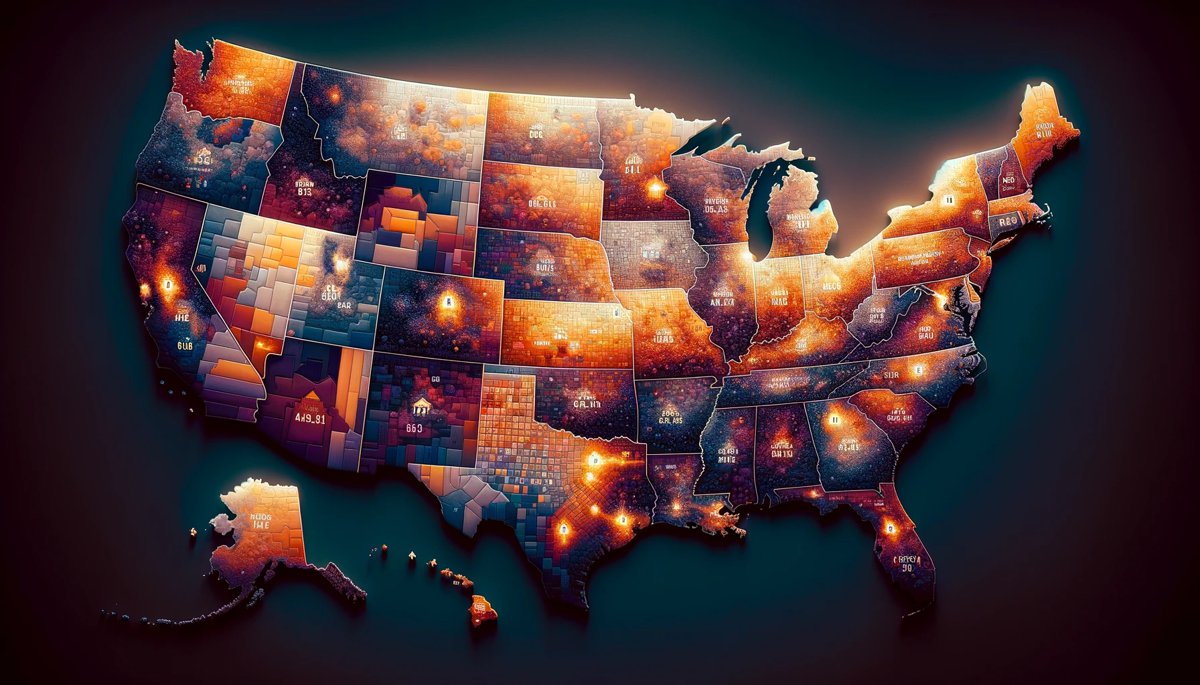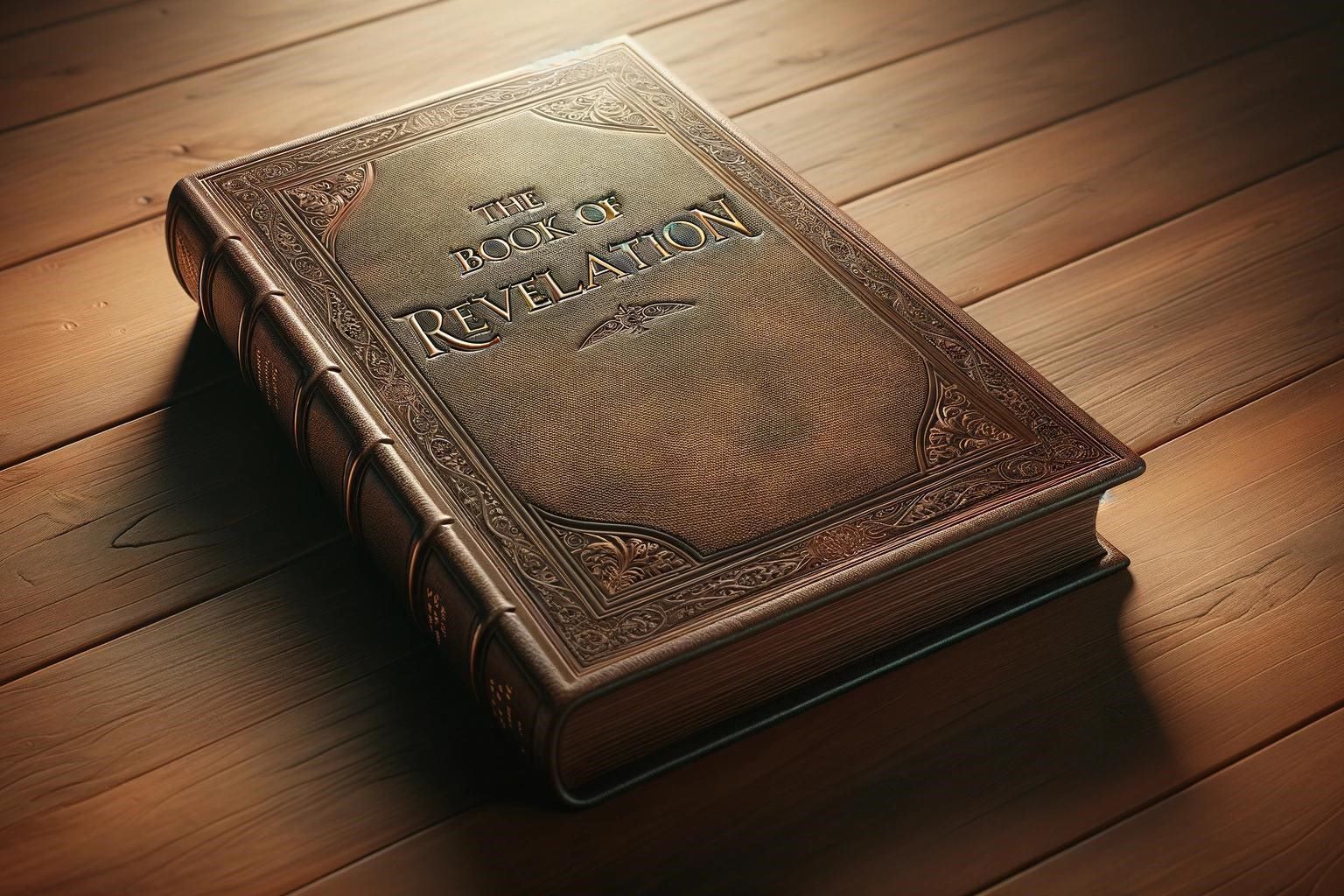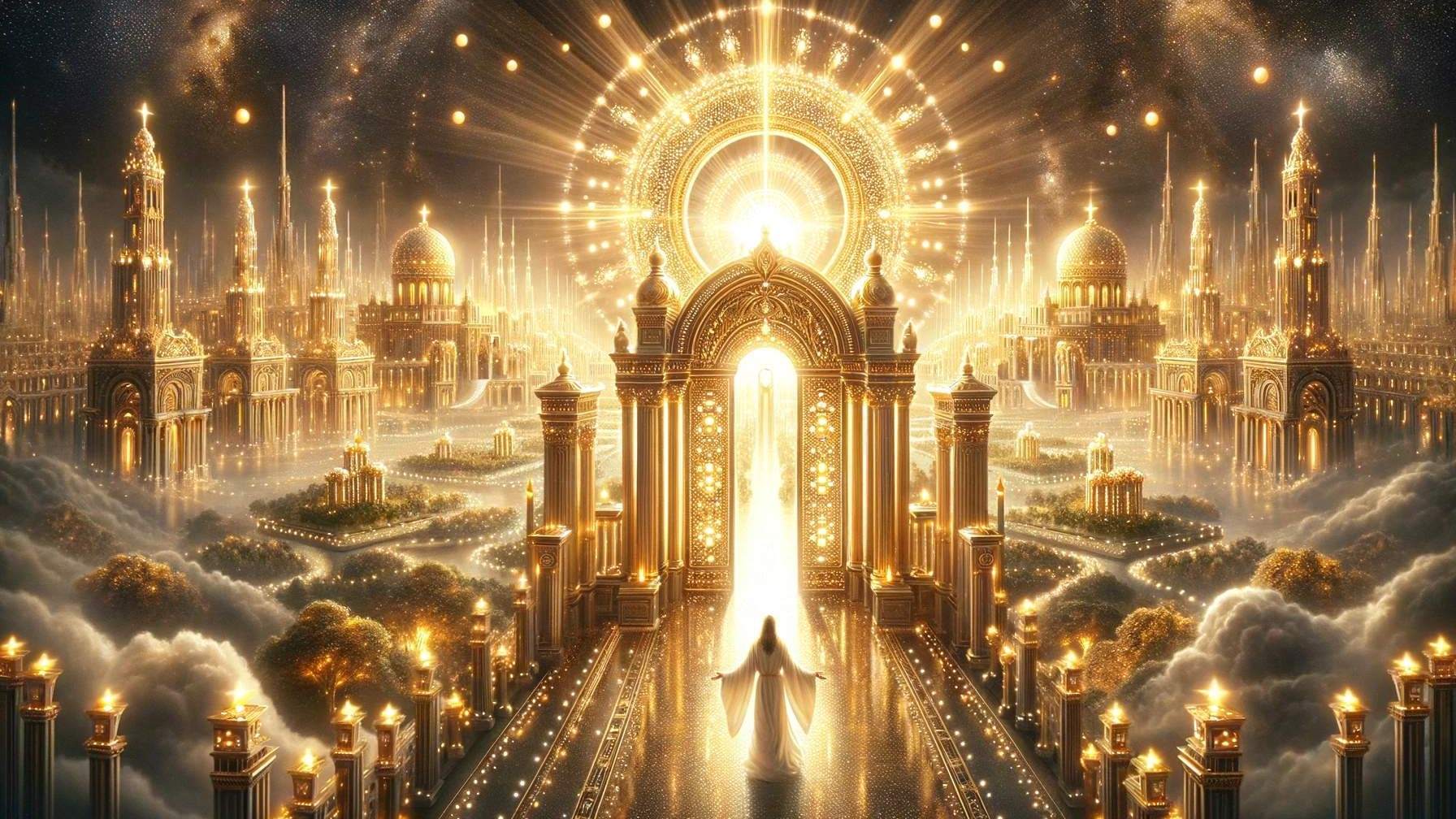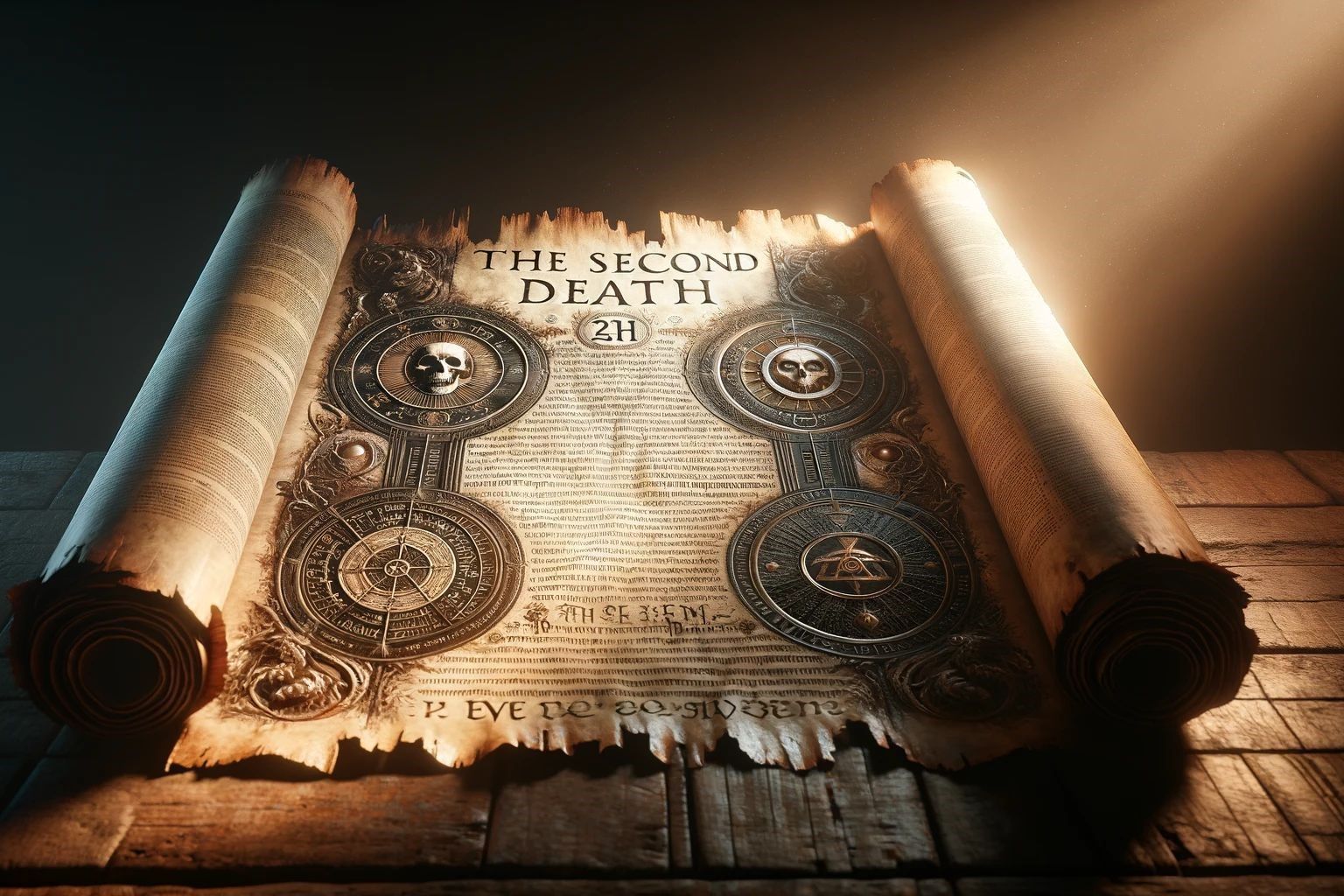Home>Bible Facts>Why Are So Many People So Fascinated Yet Terrified Of The Book Of Revelation
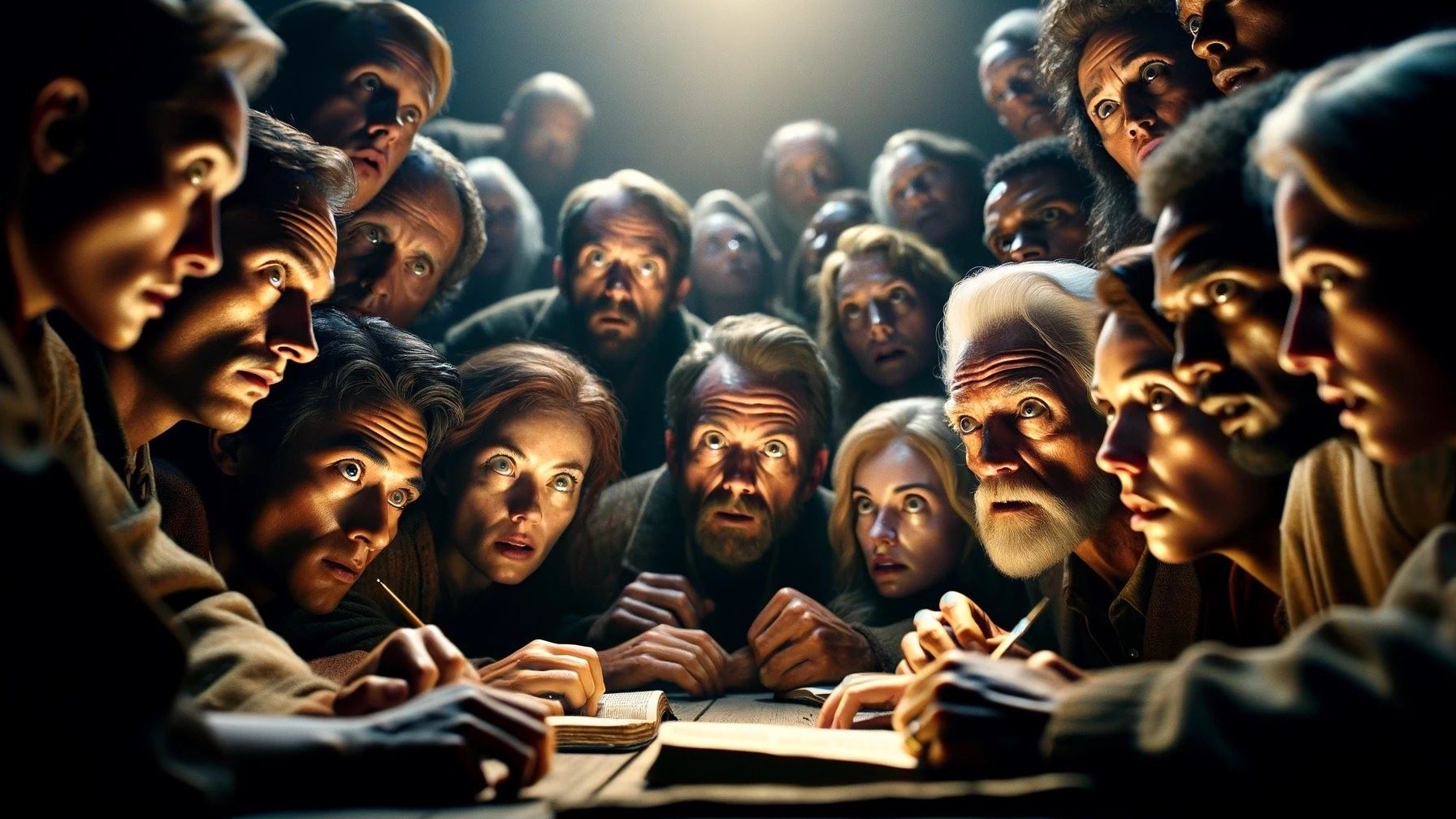

Bible Facts
Why Are So Many People So Fascinated Yet Terrified Of The Book Of Revelation
Published: February 11, 2024
Jason DeRose, Managing Editor at Christian.net, uses his expertise in religion and journalism to deepen understanding of faith's societal impacts. His editorial leadership, coupled with a strong academic background, enriches the platform’s diverse content, earning him recognition in both journalism and religious circles.
Discover the intriguing and terrifying aspects of the Book of Revelation and why it captivates and frightens so many. Uncover fascinating Bible facts and insights.
(Many of the links in this article redirect to a specific reviewed product. Your purchase of these products through affiliate links helps to generate commission for Christian.net, at no extra cost. Learn more)
Table of Contents
Introduction
The Book of Revelation, the final book of the Christian Bible, has captivated and intrigued people for centuries. Its enigmatic nature, vivid imagery, and prophetic content have sparked both fascination and fear in the hearts of readers. This ancient text, attributed to the apostle John, is shrouded in mystery and symbolism, drawing individuals from diverse backgrounds into its compelling narrative.
The allure of the Book of Revelation lies in its portrayal of cosmic conflict, divine intervention, and the ultimate triumph of good over evil. Its apocalyptic themes and vivid descriptions of cataclysmic events have fueled countless debates, interpretations, and speculations throughout history. As a result, this book has left an indelible mark on religious, cultural, and literary landscapes.
The Book of Revelation is a tapestry of rich symbolism and imagery, depicting otherworldly visions, celestial beings, and supernatural occurrences. Its vivid descriptions of the Four Horsemen, the Seven Seals, and the Beast have captured the imagination of artists, writers, and theologians across centuries. The intricate tapestry of symbols and allegories within its verses has invited deep contemplation and interpretation, adding to its mystique and allure.
Furthermore, the Book of Revelation contains prophecies about the end times, the return of Jesus Christ, and the final judgment. These prophetic passages have stirred both hope and trepidation in the hearts of believers and non-believers alike, prompting contemplation about the nature of existence and the destiny of humanity.
The pervasive fear of judgment and the unknown, as depicted in the Book of Revelation, has contributed to its enduring impact on popular culture. From literature and art to films and music, the themes and imagery from this biblical book have permeated various forms of creative expression, leaving an indelible imprint on the collective consciousness.
In the subsequent sections, we will delve deeper into the historical context, symbolism, and profound influence of the Book of Revelation, seeking to unravel the reasons behind its enduring fascination and the deep-seated fear it evokes.
Read more: How Many Chapters In Book Of Revelation
The History of the Book of Revelation
The Book of Revelation, also known as the Apocalypse of John, holds a unique place in the New Testament as the final book, offering a glimpse into the apocalyptic visions of the apostle John. Written during a time of intense persecution of early Christians, likely around 95 AD, the book was composed on the island of Patmos, where John was exiled for his faith. The historical context of Roman oppression and the fervent anticipation of Christ's return permeate the text, shaping its prophetic and visionary nature.
The authorship of the Book of Revelation has been attributed to John, the beloved disciple of Jesus, who was exiled to Patmos by the Roman authorities. During his exile, John received a series of profound visions, which he recorded in the form of letters to seven churches in Asia Minor. These letters conveyed messages of encouragement, admonition, and prophetic warnings, reflecting the challenges faced by the early Christian communities amidst persecution and moral struggles.
The book's composition occurred against the backdrop of Roman imperial cult worship, where the emperor was deified and demanded allegiance as a divine figure. In this context, the apocalyptic imagery and the proclamation of Jesus as the ultimate sovereign and conqueror challenged the prevailing power structures, offering hope and reassurance to the persecuted believers.
The Book of Revelation draws upon a rich tapestry of Old Testament prophetic traditions, incorporating elements from Daniel, Ezekiel, and Zechariah, while also reflecting the influence of contemporary Jewish apocalyptic literature. Its symbolic language and vivid imagery resonate with the prophetic traditions of ancient Israel, conveying a message of divine judgment, redemption, and the ultimate victory of God's kingdom.
Despite initial debates about its inclusion in the New Testament canon, the Book of Revelation eventually gained widespread acceptance, becoming a foundational text in Christian eschatology and theology. Its profound impact on the early church and subsequent generations is evident in the numerous commentaries, interpretations, and artistic representations that have emerged over the centuries.
The historical context and the visionary experiences of the apostle John converge to form the rich tapestry of the Book of Revelation, shaping its enduring significance and profound influence on Christian thought, spirituality, and cultural imagination.
The Symbolism and Imagery
The Book of Revelation is renowned for its intricate symbolism and vivid imagery, which serve as the primary vehicles for conveying its prophetic and apocalyptic message. Throughout its verses, a rich tapestry of allegorical representations unfolds, depicting cosmic battles, heavenly visions, and eschatological events with profound significance.
Central to the book's symbolism is the use of numbers, colors, and celestial imagery, each carrying layers of meaning and spiritual significance. The number seven, for instance, recurs throughout the text, symbolizing completeness, perfection, and divine fulfillment. The Seven Seals, Seven Trumpets, and Seven Bowls represent the unfolding of God's ultimate plan for the world, culminating in the establishment of His kingdom.
The imagery of celestial beings, such as angels, cherubim, and the Lamb of God, adds a transcendent dimension to the narrative, portraying the heavenly realm and its inhabitants as active participants in the unfolding drama of human history. The portrayal of the Lamb, symbolizing Jesus Christ, as the central figure in the cosmic conflict between good and evil underscores the book's overarching message of redemption and victory.
Moreover, the symbolic depiction of cosmic upheavals, natural disasters, and supernatural phenomena conveys the magnitude of the apocalyptic events foretold in the book. The Four Horsemen, representing conquest, war, famine, and death, evoke powerful imagery of global turmoil and divine judgment, while the visions of celestial wonders and catastrophic upheavals underscore the cosmic scale of the impending eschatological events.
The use of vivid colors, such as white, red, black, and pale green, further enriches the symbolic landscape, conveying spiritual truths and thematic motifs. The white robes of the redeemed, the red dragon symbolizing evil, and the pale green horse of pestilence all contribute to the multi-layered symbolism that permeates the book, inviting readers to discern deeper spiritual truths beyond the literal descriptions.
In essence, the symbolism and imagery of the Book of Revelation serve as a visual and conceptual framework through which its prophetic message is conveyed. The intricate tapestry of symbols, numbers, and celestial visions invites contemplation and interpretation, offering a glimpse into the profound mysteries of divine revelation and the ultimate triumph of God's redemptive purposes.
This section provides a glimpse into the rich tapestry of symbols and imagery that permeate the Book of Revelation, inviting readers to delve deeper into its profound allegorical representations and their enduring significance.
The End Times Prophecy
The Book of Revelation stands as a profound testament to the end times prophecy, offering a compelling vision of the culmination of human history and the ultimate fulfillment of God's redemptive plan. At the heart of this prophecy lies the anticipation of eschatological events, including the return of Jesus Christ, the final judgment, and the establishment of God's eternal kingdom.
Central to the end times prophecy is the portrayal of Jesus Christ as the triumphant and righteous ruler who will return in glory to consummate the divine purposes. The book unfolds a series of dramatic events, including the unsealing of apocalyptic scrolls, the sounding of trumpets, and the pouring out of bowls, each heralding the unfolding of God's sovereign plan for the world. These events culminate in the defeat of evil, the resurrection of the dead, and the renewal of creation, signaling the dawn of a new era characterized by righteousness, peace, and the eternal reign of God.
The imagery of the New Jerusalem, adorned as a bride for her husband, symbolizes the ultimate union of God and humanity, portraying the consummation of the divine-human relationship in a renewed and perfected creation. The prophetic vision of a new heaven and a new earth, free from suffering, sin, and death, offers hope and assurance to believers, pointing towards the ultimate fulfillment of God's redemptive purposes.
The end times prophecy in the Book of Revelation serves as a source of comfort, encouragement, and admonition for believers, reminding them of the transient nature of earthly trials and the certainty of God's ultimate victory. It also serves as a call to readiness and spiritual vigilance, urging individuals to live in anticipation of Christ's return and to remain faithful amidst the challenges and tribulations of the present age.
In essence, the end times prophecy of the Book of Revelation invites readers to contemplate the profound mysteries of divine revelation, the certainty of God's ultimate triumph, and the hope of a future characterized by the eternal reign of righteousness and peace. It stands as a timeless testament to the enduring significance of eschatological hope and the transformative power of God's redemptive love.
The Fear of Judgment
The Book of Revelation evokes a profound sense of fear and awe through its vivid portrayal of divine judgment and the impending reckoning of all creation. The apocalyptic imagery of catastrophic events, celestial upheavals, and the ultimate separation of the righteous and the wicked instills a deep-seated fear of accountability and the consequences of one's actions. The concept of facing divine judgment, as depicted in the book, elicits a range of emotions, from awe and reverence to trepidation and existential angst.
The vivid descriptions of the Seven Seals, the Seven Trumpets, and the Seven Bowls, each unleashing catastrophic events upon the earth, serve as harbingers of divine judgment, signaling the impending reckoning and the outpouring of God's righteous wrath. The portrayal of cosmic upheavals, natural disasters, and supernatural phenomena underscores the magnitude of the impending judgment, evoking a sense of awe and dread at the cosmic scale of divine intervention.
Furthermore, the imagery of the Great White Throne Judgment, where the books are opened, and every individual is judged according to their deeds, amplifies the fear of accountability and the solemnity of facing divine justice. The prospect of standing before the throne of God, with every thought, word, and action laid bare, evokes a profound sense of awe and trepidation, prompting introspection and contemplation of one's moral standing before the Creator.
The fear of judgment, as depicted in the Book of Revelation, serves as a sobering reminder of the moral and spiritual implications of human existence. It compels individuals to confront the reality of their choices and the eternal consequences of their lives, stirring a deep-seated fear of the unknown and the uncertainty of one's destiny. This fear, while unsettling, serves as a catalyst for spiritual introspection, moral accountability, and the pursuit of righteousness in anticipation of the ultimate judgment.
In essence, the fear of judgment, as portrayed in the Book of Revelation, serves as a powerful motivator for introspection, repentance, and the pursuit of spiritual renewal. It underscores the profound significance of moral accountability and the eternal consequences of human actions, inviting readers to confront the fear of divine judgment and to seek reconciliation with the divine in anticipation of the ultimate reckoning.
The Pop Culture Influence
The influence of the Book of Revelation extends far beyond religious and theological realms, permeating popular culture and leaving an indelible mark on literature, art, music, and film. Its apocalyptic themes, vivid imagery, and prophetic narrative have captivated the imagination of creators and audiences, shaping diverse forms of creative expression and cultural discourse.
In literature, the themes and motifs from the Book of Revelation have inspired numerous works of fiction, ranging from dystopian novels to epic fantasies. Authors such as George R.R. Martin, Stephen King, and J.R.R. Tolkien have drawn upon the book's apocalyptic imagery and cosmic conflict to craft compelling narratives that resonate with readers across generations. The archetypal motifs of good versus evil, the end of the world, and the triumph of righteousness have served as enduring sources of inspiration for storytellers seeking to explore the depths of human experience and existential dilemmas.
Similarly, the visual arts have been profoundly influenced by the symbolic richness of the Book of Revelation. From medieval illuminated manuscripts to contemporary paintings and sculptures, artists have sought to capture the otherworldly visions and celestial drama depicted in the book. The iconic imagery of the Four Horsemen, the Whore of Babylon, and the New Jerusalem has been reimagined and reinterpreted through the creative lens of artists, offering visual representations of the book's profound themes and allegorical landscapes.
Moreover, the influence of the Book of Revelation extends to the realm of music, where its apocalyptic motifs and eschatological themes have found resonance in diverse genres. From classical compositions to contemporary rock and metal, musicians and lyricists have drawn inspiration from the book's prophetic imagery to craft evocative and thought-provoking songs. The themes of divine judgment, redemption, and the struggle between good and evil have provided fertile ground for musical exploration, enriching the cultural tapestry with compositions that reflect the enduring impact of the book's narrative.
In the realm of film and television, the apocalyptic themes and cosmic drama of the Book of Revelation have been a source of inspiration for filmmakers and screenwriters. Countless movies, series, and documentaries have explored the end times prophecy, the battle between light and darkness, and the ultimate triumph of divine justice, drawing upon the book's rich imagery to create compelling visual narratives that resonate with audiences worldwide.
In essence, the pop culture influence of the Book of Revelation underscores its enduring relevance and profound impact on the collective imagination. Its apocalyptic themes, vivid imagery, and prophetic narrative continue to inspire and provoke creative expression, enriching the cultural landscape with timeless reflections on the human condition and the cosmic drama of existence.
Conclusion
The Book of Revelation stands as a timeless testament to the enduring power of biblical prophecy, symbolism, and apocalyptic imagery. Its enigmatic narrative, rich symbolism, and profound themes have captivated and intrigued readers across centuries, leaving an indelible mark on religious, cultural, and artistic expressions. From its historical origins in the context of Roman persecution to its enduring influence on popular culture, the Book of Revelation continues to evoke fascination and fear, inviting contemplation of the ultimate questions of human existence and the cosmic drama of divine intervention.
As we reflect on the enduring significance of the Book of Revelation, it becomes evident that its profound impact transcends religious boundaries, resonating with individuals from diverse backgrounds and worldviews. The book's portrayal of cosmic conflict, divine justice, and the ultimate triumph of righteousness speaks to the universal human longing for meaning, redemption, and the hope of a transcendent reality beyond the temporal realm.
Furthermore, the Book of Revelation serves as a poignant reminder of the transient nature of human existence and the moral accountability that accompanies it. Its vivid imagery of divine judgment, the fear of the unknown, and the anticipation of eschatological events prompt introspection and spiritual contemplation, inviting individuals to confront the reality of their choices and the eternal consequences of their lives.
In the realm of popular culture, the book's influence continues to permeate literature, art, music, and film, inspiring creators to explore the depths of human experience, existential dilemmas, and the timeless struggle between good and evil. Its apocalyptic motifs and prophetic themes have provided fertile ground for creative expression, enriching the cultural landscape with enduring reflections on the human condition and the cosmic drama of existence.
Ultimately, the Book of Revelation stands as a testament to the enduring power of biblical narrative and the profound impact of divine revelation on the human imagination. Its timeless themes of hope, judgment, and the ultimate triumph of righteousness continue to resonate with readers, inviting them to contemplate the mysteries of existence and the transformative power of divine love. As we navigate the complexities of the modern world, the enduring fascination and deep-seated fear evoked by the Book of Revelation serve as a poignant reminder of the enduring relevance of its prophetic message and the timeless quest for spiritual truth and redemption.
